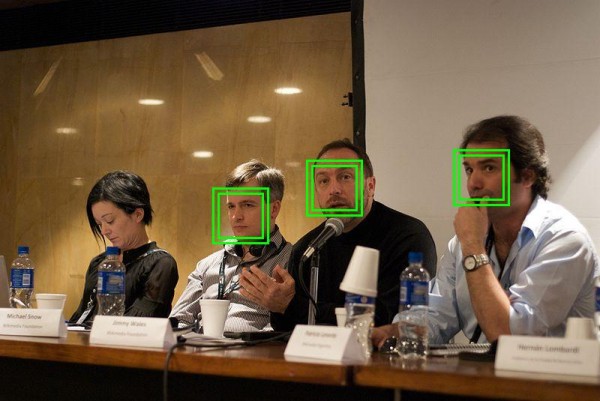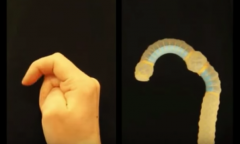By Vishal Goel, | January 05, 2017

The method dodges facial recognition algorithms by presenting computer vision devices with an overload of patterns closely resembling facial features. (Beatrice Murch/CC BY 2.0)
A Berlin-based artist has developed a garment called Hyperface that prevents the wearer's face from being recognized by computers. The technology was developed to confuse computer vision systems by feeding them with false information through certain patterns printed on the clothes.
Like Us on Facebook
The Hyperface Project, created by technology and independent researcher Adam Harvey, revolves around printing deceitful patterns onto the attire and textiles with the purpose of rendering a face illegible to surveillance systems, the Guardian reported.
The method dodges facial recognition algorithms by presenting computer vision devices with an overload of patterns closely resembling facial features like eyes and mouths. According to Harvey, the Hyperface technology ultimately prevents computers from scanning the face by inundating "an algorithm with what it wants, oversaturating an area with faces to divert the gaze of the computer vision algorithm."
The patterns were developed by Harvey in collaboration with interaction studio Hyphen-Labs. Given that tech giants and researchers have been consistently improving and developing new technologies for facial recognition, anti-surveillance solutions like this could be a viable way of protecting privacy.
This is not the first time Harvey created something to make a fool out of the computer facial recognition systems. The artist once developed a technique for makeup and hairstyle to make detection of faces by computers difficult.
Facebook uses computer vision algorithms for its automatic tagging feature and Amazon recently equipped its physical Go stores with a facial surveillance system.
On the academic front, researchers from the Shanghai Jiao Tong University in China recently showcased an artificial intelligence algorithm that is capable of identifying criminals based on the curvature of their lip.
-
Use of Coronavirus Pandemic Drones Raises Privacy Concerns: Drones Spread Fear, Local Officials Say

-
Coronavirus Hampers The Delivery Of Lockheed Martin F-35 Stealth Fighters For 2020

-
Instagram Speeds Up Plans to Add Account Memorialization Feature Due to COVID-19 Deaths

-
NASA: Perseverance Plans to Bring 'Mars Rock' to Earth in 2031

-
600 Dead And 3,000 In The Hospital as Iranians Believed Drinking High-Concentrations of Alcohol Can Cure The Coronavirus

-
600 Dead And 3,000 In The Hospital as Iranians Believed Drinking High-Concentrations of Alcohol Can Cure The Coronavirus

-
COVID-19: Doctors, Nurses Use Virtual Reality to Learn New Skills in Treating Coronavirus Patients











